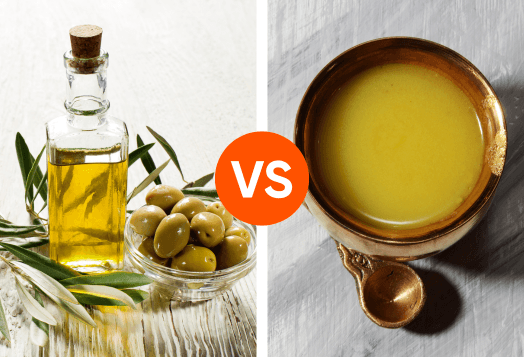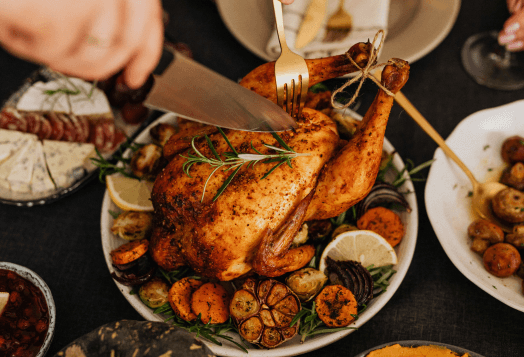
You’ve probably tried everything—low-carb, juice cleanses, skipping meals—only to see the weight return. There’s no magic meal for weight loss management, but avoiding processed foods and focusing on whole grains, lean proteins, and healthy fats is a solid start.
A structured weight loss diet plan helps control calories without making you feel restricted.
Let’s look at some best diet plans for weight loss that actually work for sustainable weight management.
The Science Behind Weight Loss
Losing weight isn’t about starving yourself or chasing the latest fad. It all comes down to how your body processes food, burns calories, and stores fat. Here’s how it usually works:
Calorie deficit is key – You need to burn more calories than you consume to lose weight. This can be done by reducing portion sizes, making smarter food choices, and staying active.
Macronutrients matter – Proteins, fats, and carbs all play different roles in metabolism. A balanced intake keeps your body fuelled while promoting fat loss.
Not all calories are equal – 500 calories of processed junk affect your body differently than 500 calories of whole foods. Nutrient-dense meals keep you fuller for longer.
Metabolism varies for everyone – Age, genetics, and activity levels impact how fast your body burns calories. A diet that works for one person may not work the same way for another.
Consistency over perfection – Extreme diets lead to burnout. A sustainable approach with realistic changes is the key to long-term weight management.
8 Best Sustainable Weight Loss Diets That Work
Not all weight loss diet plans are created equal. Some are too restrictive, while others are impossible to follow long-term. Here are some of the most effective nutrition for weight loss that fit different lifestyles and food preferences.
1. Mediterranean diet – For a balanced and heart-healthy
Along with weight loss, this diet supports heart health and overall well-being. It focuses on whole grains, lean proteins, healthy fats like olive oil, and plenty of fresh fruits and vegetables.
For this diet, you need to keep processed foods and added sugars to a minimum. The emphasis on nutrient-dense foods helps control hunger while keeping energy levels high. This makes it easier to maintain a weight-loss diet plan without feeling restricted.
2. Intermittent fasting – Timing matters more than calories
Instead of focusing on what you eat, this plan focuses on when you eat. Common fasting windows include 16:8 (fasting for 16 hours, eating within an 8-hour window) or 5:2 (eating normally for five days and restricting calories on two days).
This approach naturally reduces calorie intake and improves metabolism, making it easier to lose weight without counting every bite.
3. Low-carb and keto diet – Cutting carbs for fat burn
By reducing carbohydrates and increasing fat intake, the body shifts into ketosis, where it burns fat for fuel instead of glucose. The keto diet is effective for rapid weight loss, but it requires discipline.
Low-carb versions, like the Atkins or South Beach diet, allow more flexibility while still promoting weight loss. The key is replacing refined carbs with nutrient-rich vegetables, lean proteins, and healthy fats.
4. Plant-based diet – Weight loss the natural way
A diet rich in fruits, vegetables, legumes, and whole grains not only supports weight loss but also boosts overall health. Cutting down on processed and animal-based foods reduces calorie intake while increasing fibre, which keeps you full longer.
Whether fully vegan or flexitarian, this approach makes weight loss feel effortless by focusing on wholesome, unprocessed ingredients.
5. DASH diet – Great for weight loss and blood pressure
Originally designed to lower blood pressure, the DASH diet is also an excellent choice for weight loss.
It promotes a balanced intake of fruits, vegetables, lean proteins, and whole grains while cutting down on sodium and processed foods. The focus on nutrient-dense foods helps manage cravings, making it easier to stick to a calorie-controlled plan.
6. Portion control and mindful eating – No food is off-limits
Sometimes, it’s not about what you eat but how much. Mindful eating encourages listening to your body's hunger signals, eating slowly, and enjoying every bite.
Pairing this with portion control ensures you can still enjoy your favourite foods without overeating. This method works well for those who struggle with strict diets but want a sustainable weight loss management approach.
7. High-protein diet – Fuel your muscles, burn more fat
Protein is essential for muscle repair and satiety, making a high-protein diet a smart choice for weight loss.
Lean meats, fish, eggs, legumes, and dairy help you feel full longer while preserving muscle mass. This diet works particularly well for those who exercise regularly, as it supports muscle recovery and boosts metabolism, making fat loss more efficient.
8. The volumetrics diet – Eat more, weigh less
If you love food and hate feeling deprived, the volumetrics diet might be for you. It focuses on eating large portions of low-calorie, high-volume foods like fruits, vegetables, soups, and lean proteins.
The idea is simple: eat more foods that take up space in your stomach but contain fewer calories, keeping you satisfied without overeating. This approach is easy to follow and helps prevent hunger-related bingeing.
The Right Diet is One You Can Stick To
While each of these above-mentioned diets has its benefits, the key to sustainable weight management is consistency, not perfection. Restrictive diets and extreme calorie cuts might work short-term, but real results come from long-term changes that you can actually maintain.
Of course, knowing what to eat is just one part of the challenge—sticking to it is the real test. That’s where expert guidance makes all the difference.
Disclaimer: This information provided is intended for general informational purposes only. It is not a substitute for professional advice or guidance. For personalised recommendations or specific concerns, please consult a certified professional.




